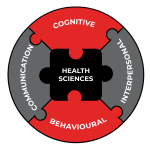5.13 Program: Practical Nursing
Registered practical nurses (RPNs) commonly work in hospitals, clinics, and the community to provide safe and general care to people of all ages. An RPN would work with patients whose condition is considered stable or predictable.
Places You May Find Yourself Employed
Long term care; mental health facilities; homes for the aged, retirement homes, and nursing homes; acute care hospitals; continuing care facilities; community care agencies; assisted living centres; occupational health departments; primary care clinics and physicians’ offices; schools; or group homes.
Program Fit
What personal qualities should someone interested in this career have?
The College of Nurses has published a detailed list of the skills abilities needed for nurses. See their list Requisite Skills and Abilities for Nursing Practice in Ontario.
- Able to empathize with others
- Prepared to work with vulnerable people
- Willing to handle situations involving blood, bodily matter and personal situations
- Able to cope in busy/changing environments
- Able to make decisions in life and death (crisis) situations
- Flexibility – able to deal with uncertainty and changing situations
- Personal integrity
- Ability to accept and comply with professional standards of behavior and practice
- Able to respect private and confidential information
- A commitment to life-long learning
- Develop professional relationships and rapport with individuals and groups
- Recognize the importance of maintaining interpersonal boundaries
- Recognize the needs of clients and colleagues
- Respond appropriately in situations that are stressful or involve conflict
- Strong organizational and time management skills
- Able to set priorities
Useful background experience for this program would be
Previous work as a lifeguard; leadership experience in youth activities (school council, youth group or church leader, camp counsellor); work with service clubs related to health care or health promotion, i.e. St. John’s ambulance; or volunteer or co-op experience at a hospital or home for the elderly.
Typical working conditions for this kind of work:
- Shift work; night and weekend work required
- Physically demanding work (lifting, standing for long periods of time)
- Deal with blood/vomit/food material/body parts/handle bodily functions
Tasks a graduate may do in the workplace
- Collaborate with registered nurses, psychiatric nurses, physicians, physiotherapists or other health care professionals
- Carry out many nursing responsibilities independently, depending on the nature and complexity of the client care required and the environment in which they work
- Assess, plan, implement and evaluate nursing care
- Use critical thinking and clinical judgment to provide care for individuals and groups
- Document and communicate client data to ensure continuity of care
- Work with a variety of health professionals, consulting as necessary
Becoming a Practical Nurse
The Practical Nursing program at Fanshawe College is a 63 week year, Diploma program starting in September each year with theory and practical components. Students will do a placement in this program. The program workload is considered to be heavy with:
- Eight courses in your first semester
- 1-2 hours of study for each hour in class
- 24-27 hours of class & labs each week (48 – 80 hour/week commitment)
This program is offered part-time and full-time at more than one campus for your convenience. Learn more about the programs and services of Fanshawe’s campuses in London (London Campus) and Woodstock.
Graduates must write Canadian Practical Nurse Registration Examination to registration with the College of Nurses of Ontario as a Registered Practical Nurse (RPN).
Courses can be found: Practical Nursing | Fanshawe College
The College of Nurses has published a detailed list of the skills abilities needed for nurses. See their list Requisite Skills and Abilities for Nursing Practice in Ontario.
- Able to empathize with others
- Prepared to work with vulnerable people
- Willing to handle situations involving blood, bodily matter and personal situations
- Able to cope in busy/changing environments
- Able to work in stressful situations
- Able to make decisions in life and death(crisis) situations
- Flexibility – able to deal with uncertainty and changing situations
- Personal integrity
- Able to respect private and confidential information
- Enjoy working with and caring for people of all ages
- Excellent communication and interpersonal skills
- Ability to work as part of a team
- Strong organizational skills
- Able to set priorities
Typical working conditions for this kind of work:
- Shift work
- Night and weekend work required
- Long periods of standing
- Lifting required
Tasks a graduate may do in the workplace
- Assessing the needs of individuals, families, groups or communities throughout the lifespan
- Planning, implementing, evaluating and documenting nursing care
- Coordinating patient care
- Managing and implementing patient care plans, leading and supervising nursing teams and advocating for clients.
- Coordinating and supervising the activities of multi-disciplinary teams responsible for planning and implementing patient care
- Facilitating case management by coordinating health care
- Observing, assessing and monitoring patient symptoms, and evaluating reactions and progress
- Independently implementing nursing interventions as needed
- Collaborating with other members of health care teams regarding patient treatments and examinations
- Administering medications, injections and intravenous therapy
- Preparing patients and assisting surgeons during operations
- Assisting in childbirth, managing labour and caring for newborns and their families
- Preventing or treating injuries or illness, and managing chronic diseases
- Educating patients about health care
- Managing nursing services
- Leading and participating in research activities
- Nurses may specialize in other areas such as Community Health Nurse, Occupational Health Nurse, Psychiatric Nurse
Becoming a Registered Nurse
The Collaborative Bachelor of Nursing program at Fanshawe College is a 120 week, 4 year, Degree program with 2 years at Fanshawe College and 2 years at University of Western Ontario starting in September each year with theory and practical components. Students will do a placement in this program. The program workload is considered to be heavy with:
- Five courses in your first semester
- Three hours of study on average for each hour in class
- 18 hours of class & labs each week (72 hour/week min commitment)
Graduates must take a National Council Licensure Examination for Registered Nurses (NCLEX-RN) – the entry-to-practice to become registered with the College of Nurses of Ontario
This document Become a Nurse can provide more information about the scope of practice for the RN.
Courses can be found: Collaborative Nursing | Fanshawe College
Further Information

National Council of State Boards of Nursing exam (NCLEX-RN)
College of Nurses of Ontario (CNO)
Registered Nurses Association of Ontario (RNAO)
Different types of nursing – Careers in Nursing
Pathways:
Opportunities for further development or education
Graduates may wish to continue with post graduate studies at Fanshawe College
Graduates may be able to transfer credit from their diploma to a university degree. See Fanshawe Pathways & Credit Transfer for a list of agreements.
Graduates may be eligible for application to RPN to BScN University bridging programs at some universities if admission requirements are met
Fanshawe Pathfinder: Practical Nursing © Fanshawe College used with permission, All Rights Reserved
Admission requirements:
Practical Nursing Admission Requirements
Post Admission:
Refer to Clinical/Field Pre-Placement Process for important information about placement requirements that need to be met prior to starting the program. These include:
- Possession of a Standard First Aid course certificate (either St. John Ambulance or Canadian Red Cross or equivalent) and a Basic Rescuer course certificate – Basic Life Support (BLS) for Health Care Providers (HCP) in accordance with the Heart and Stroke Foundation of Canada Canadian Guidelines for CPR
- Evidence of Good Health (including immunizations)
- Police Vulnerable Sector Check (PVSC), including a check of the Pardoned Sexual Offenders Database
- Placement Agreement
PHS Graduates
Graduates of the PHS2 Pre Health Science – Pathways to Advanced Diplomas and Degrees, within the past 5 years and with a minimum 2.5 GPA and a grade no lower than 3.0 in ANAT 1002, ANAT 1009, BIOL 1003 AND BIOL 1008 may apply for advanced credit in Anatomy and Physiology 1. Refer to program coordinator at start of program for eligibility.


